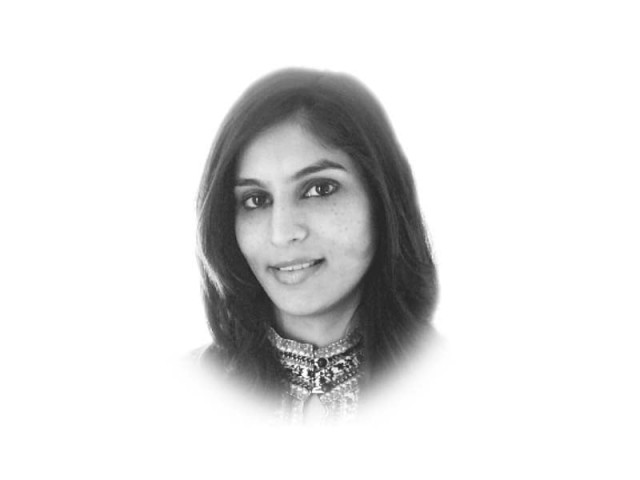The blessed season
It is time to reclaim this blessed season and bring back the one thing it was meant to inculcate — empathy

The writer is a freelance writer based in Islamabad. She blogs at
www.aishasarwari.wordpress.com. She can be followed on Twitter
@AishaFsarwari
Then there is the festivity the season brings. In the days leading up to Eid, Pakistan becomes the diametrically opposite experience of everything the HBO show “Homeland” depicts it to be — there is colour, henna, embroidered Sunday bests, house upgrades and all the beauty parlours make up for the energy shortfalls of the year. This is not insignificant; this is the experience that every child growing up in Pakistan will remember and this will be the reason why he or she will eventually be pulled back to contribute to his or her motherland. We are building a cache of memories, which will help make a future for Pakistan.
The aromatic meethi Eid is perhaps, the sweetest day Pakistan has, and God knows we could do with sweet days. Eid is also a day we retrospectively connect with those who lost loved ones. It humanises us and we could do with that too: some more humanity. As slowly and steadily what defines Pakistaniat is taken away from us by an intellect-less leadership — Basant being a case in point — we need to hold on to the traditions we still have. The Islamic State now thinks Eid prayers are un-Islamic. We need to turn exactly 180 degrees away from that obscurantist mindset. Such a turnaround lies in adorning our children with the colours of festivity and culture.
Peaceful rituals often enable us to develop the ability to ward off evil — the addictions, the loneliness and the isolation. They bring harmony to thousands, ensure that there is a sense of sacrifice and control the beast that Pakistanis are often found unleashing in the form of road rage and domestic disputes. Yet, how much of this goodness do we channel positively? Much of it unfortunately ends up in the bad category.
The generosity that peaks in Ramazan is hardly organised, despite it being abundant. This month provides the 15 minutes of fame for the religious right, who actually profiteer from religiosity instead of being humbled by its blessings. There are many groups that are indistinguishable from hard core terrorist organisations. They have franchised terror and yet are found opening Zakat/alms collection centres at busy traffic points, without fear for any censure from authorities. People who are taken in by the symbolism of religiosity donate to these organisations openly to compensate for their human failings and guilt.
Then it gets really ugly too. A man from Somalia asked a mufti in Saudi Arabia if he should fast when there is no food to break the fast or to keep it. The mufti broke down and cried after listening to his plight. In Karachi, around 40,000 people were treated for heatstroke and over a thousand could not be treated and hydrated in time, resulting in around 1,300 deaths. The poor were the biggest sufferers here because they often have to work with their hands to get the wage and food that will fuel them for another day of work. Making the miserable more miserable has got to be a greater sin than any other.
It is ugly to convert this month of simplicity into a month of excess and artery-clogging food, while on the other hand the poor get sick and die. It is time to reclaim this blessed season and bring back the one thing it was meant to inculcate — empathy.
Published in The Express Tribune, July 17th, 2015.
Like Opinion & Editorial on Facebook, follow @ETOpEd on Twitter to receive all updates on all our daily pieces.















COMMENTS
Comments are moderated and generally will be posted if they are on-topic and not abusive.
For more information, please see our Comments FAQ